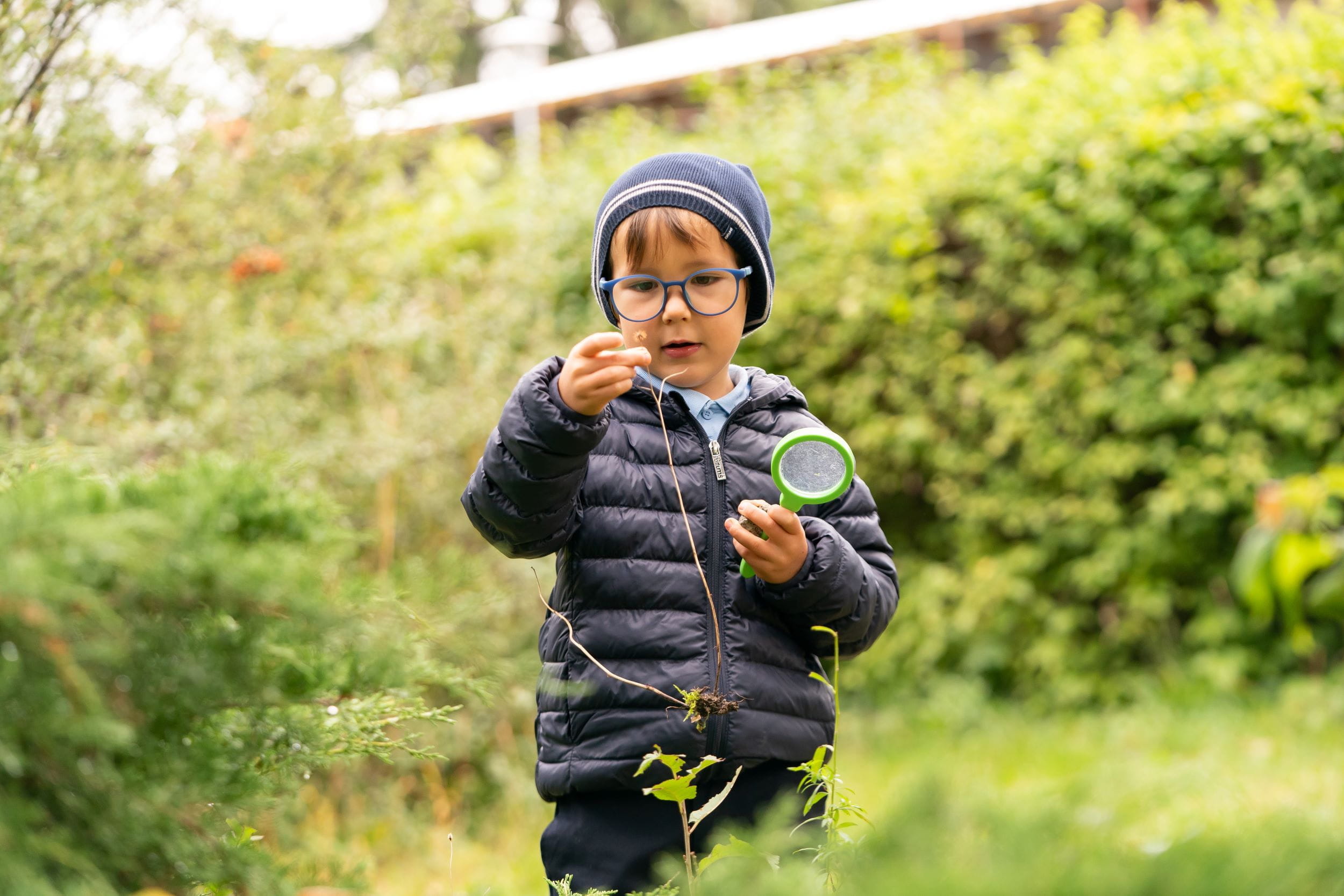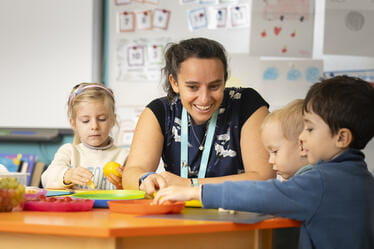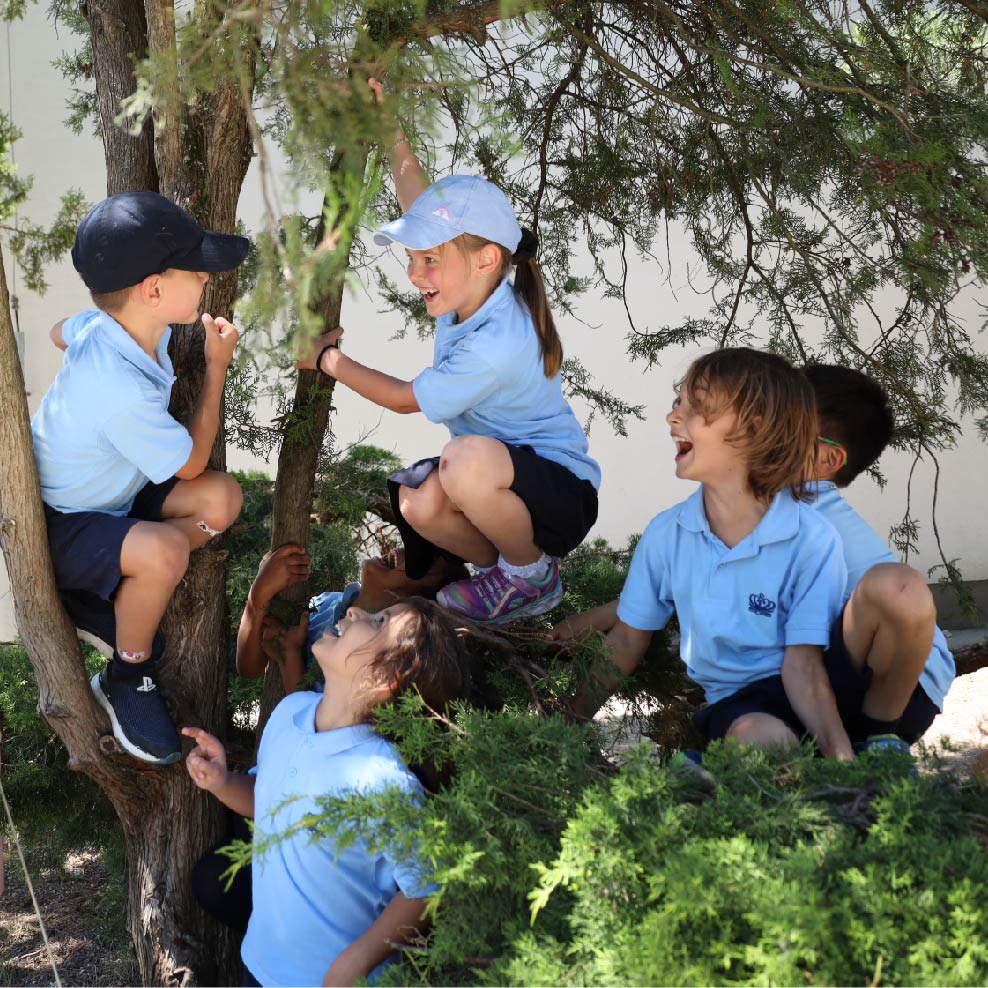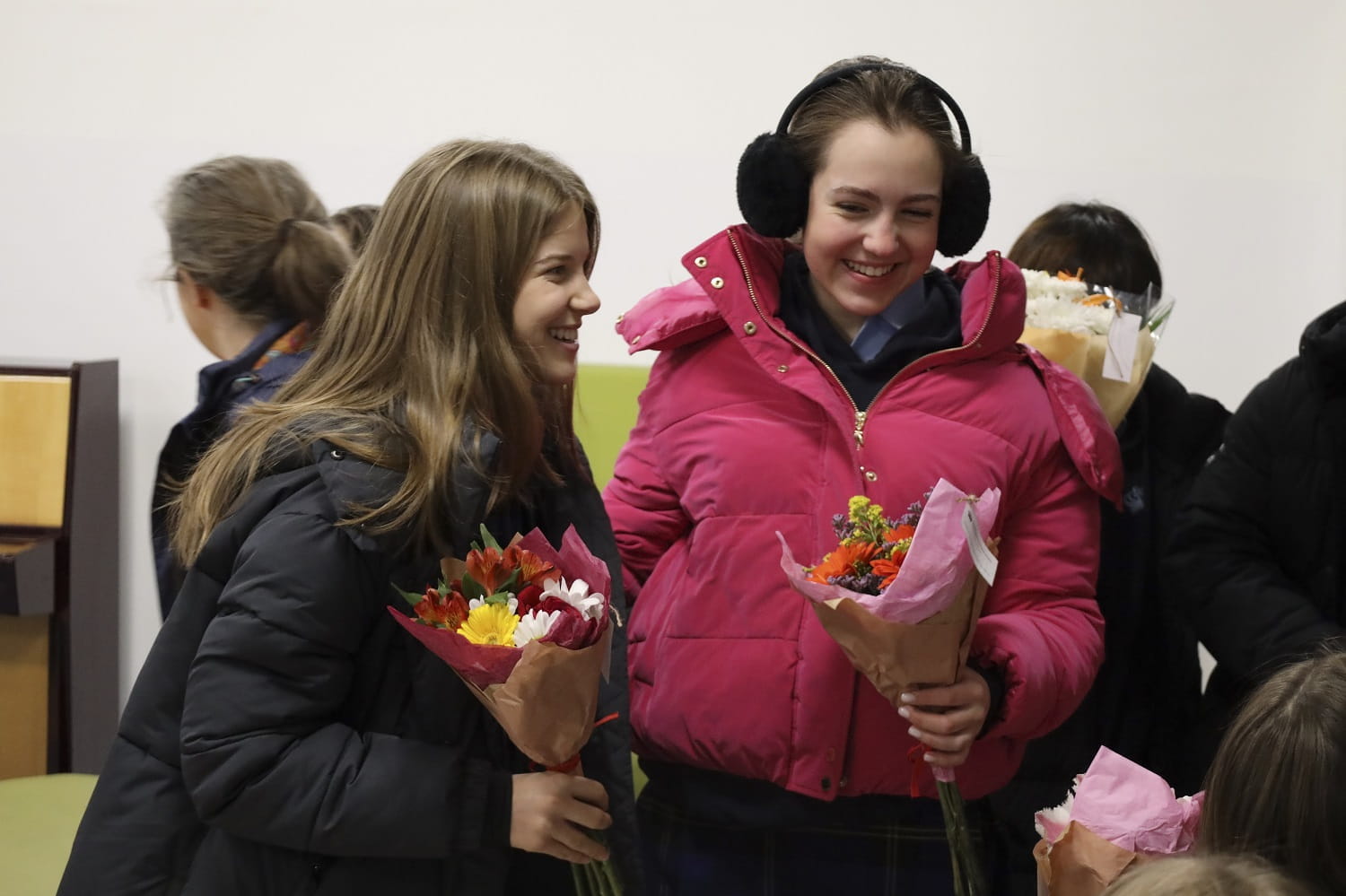Forest School in EYFS and its connection with the curriculum
At BISB, we follow the core Early Years Foundation Stage (EYFS) curriculum, incorporating nature-based learning in a safe, secure, and attractive outdoor Forest School environment. Our Forest School activities are connected to what our students learn in the classroom, and are compiled by experienced Forest School practitioners. Through a variety of outdoor experiences and play-based learning, our children investigate, explore, and become inquisitive nature detectives.
In EYFS (and throughout the whole school), we actively provide a range of nature immersion programmes through after-school clubs, field trips, and our summer camp for younger learners. An immersive natural experience stimulates the five sensory systems, which increases activity in the parasympathetic nervous system. This leads to heightened awareness and a state of relaxation.
Benefits of Forest School
Learning outside has a significant impact on our children's development and well-being. The specific benefits of Forest School are even more extensive. Our programme helps children to develop:
- self-awareness
- motivation
- empathy
- social skills
- communication skills
- independence
- self-esteem and confidence
- physical skills including the development of both gross and fine motor skills
- problem solving and risk taking skills
- resilience
- concentration
- knowledge and understanding of the world around them.
What are Forest School activities?
Children are curious little critters with big imaginations, and learning outdoors is the perfect way to develop new skills. The importance of the implementation of an Early Childhood Environmental Education (ECEE) for our young learners with a systematic program has a strong evidence base, especially when the most frequently reported positive outcomes are related to environmental literacy, cognitive development, social-emotional development and, last but not least, physical, language and literacy development.
We know from experience that young learners love getting to grips with the natural materials they find in the local area. A typical day at Forest School involves gathering sticks and leaves, building dens, shelters, pirate ships, and bridges, climbing trees, using twigs to write and draw in the mud, counting bugs, and splashing in puddles. Some sessions involve tools like hacksaws, firelighters, and cooking pans. Making a fire and roasting marshmallows is one of our most popular activities.
Gardens as a part of Forest School activities
The gardens in the Willows and Maple areas provide opportunities for horticulture lessons, which are part of the Forest School curriculum. In the autumn and spring, these lessons improve natural observation skills and encourage every student to consider the environment around them.





